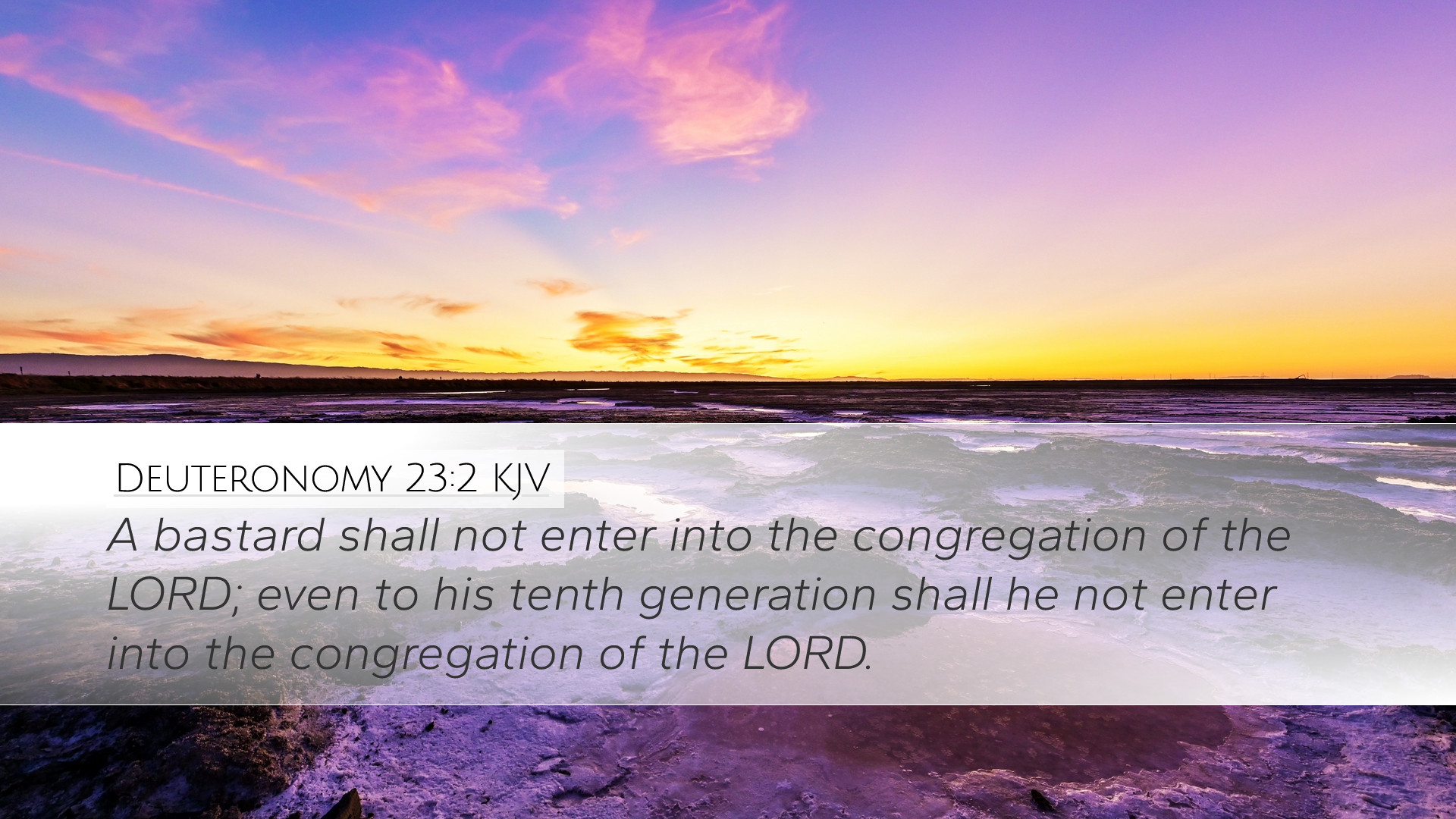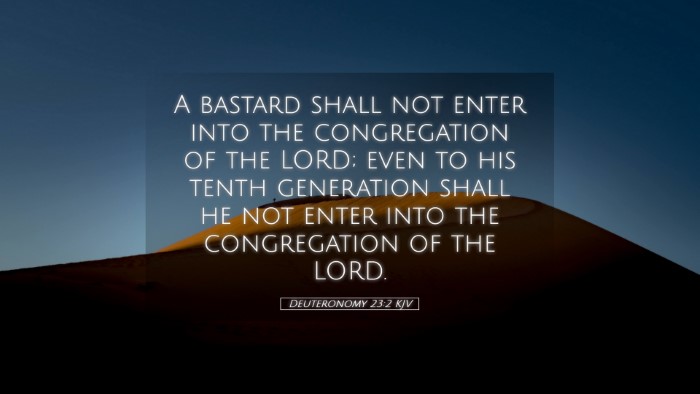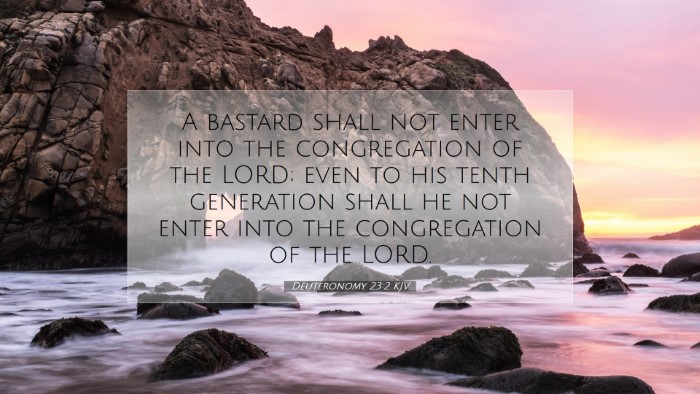Commentary on Deuteronomy 23:2
Verse Text: "A bastard shall not enter into the congregation of the Lord; even to his tenth generation shall he not enter into the congregation of the Lord." (Deuteronomy 23:2, KJV)
Introduction
The verse from Deuteronomy 23:2 has often been a subject of discussion among theologians and Bible scholars. It reflects the laws concerning permissible participation in the religious community of Israel and underscores significant themes in biblical holiness, lineage, and community purity.
Contextual Background
The surrounding context of the book of Deuteronomy consists largely of Moses' farewell speeches to the Israelites as they prepare to enter the Promised Land. The laws presented are intended to guide them in maintaining their covenant relationship with God.
Insights from Commentaries
Matthew Henry's Commentary
Matthew Henry emphasizes the gravity of the instruction: a "bastard" or illegitimate child represents a break in the established order of Israelite society. He highlights that the command is not merely about lineage but reflects a broader concern for purity and integrity within the congregation of the Lord.
Henry notes that the term "congregation" implies both the assembly of the faithful and the sacred presence of God among them. The notion of exclusion for ten generations underscores the seriousness of the matter, marking a long-term impact on both individual identity and community standards.
Albert Barnes' Notes
Albert Barnes provides a detailed examination of the Hebrew term translated as "bastard." He suggests that the law serves to protect the sanctity of the worshipping community. Barnes elaborates that the exclusion is not an indictment against the individual's worth or faith but serves as a reflection of societal norms at the time, which often placed a significant weight on genealogical purity.
Furthermore, Barnes discusses the concept of “congregation” and points out the spiritual implications. The Lord's assembly is holy and distinct, and any form of defilement, whether through illegitimacy or otherwise, could compromise the integrity of divine worship.
Adam Clarke's Commentary
Adam Clarke offers a theological perspective, asserting that the instruction reveals God's concern for the holiness of His people. Clarke discusses the long-reaching implications of exclusion, noting that ten generations suggest a permanence to the consequence of sin and societal disruption.
Clarke also comments on the notion of mercy, suggesting that while the law appears harsh, it allows for the acknowledgment of one's past and serves as a reminder that all individuals, regardless of background, are still called to partake of God’s grace and forgiveness.
Theological Implications
This verse raises several theological considerations related to the concepts of grace, community standards, and God’s holiness. While the Old Testament law seems strict, it points toward a future where grace abounds through Christ Jesus. The New Testament theme of inclusion offers a dramatic contrast to this stipulation, emphasizing that in Christ, all are one regardless of background.
- Holiness vs. Inclusion: The challenge is found in balancing God’s call for holiness with the inclusivity found in the Gospel.
- Generational Impact: The concept of lasting consequences demonstrates the importance of moral conduct and its implications for future generations.
- The Nature of God: God's perspective on the congregation reflects His desire for a holy, set-apart people that honors Him through communal fidelity.
Practical Applications
For modern-day pastors, theologians, and students, Deuteronomy 23:2 urges a careful consideration of how we view community membership and purity. It brings several practical reflections:
- Understanding Grace: While we appreciate the need for holiness, the message of grace must remain integral in church teachings.
- Community and Discipleship: Churches should aim to foster communities where grace abounds and past blemishes do not condemn but are seen as opportunities for redemption and transformation.
- Historical Awareness: An understanding of historical contexts surrounding biblical texts enhances our interpretation and application of scripture today.
Conclusion
Deuteronomy 23:2 is a poignant reminder of the interplay between divine holiness and human frailty. The depth of its implications encourages practitioners of the faith to navigate the complexities of community and grace with discernment and love. The insights provided by scholars like Matthew Henry, Albert Barnes, and Adam Clarke illuminate the way forward, serving to guide our understanding of scripture as it relates to both historical context and contemporary relevance.


